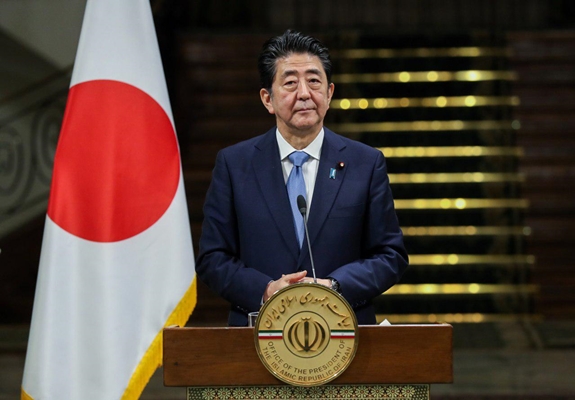It was almost certain to every observer in the world how important was the first-ever visit of a Japanese prime minister to Tehran after the 1979 Revolution. Amid unprecedented tensions between Iran and the US, the peace-seeking people of Iran, the region, and the world saw a glimmer of hope when Abe decided to visit Tehran for de-escalation.
However, two giant oil tankers were set ablaze right at the time when the world was awaiting the news of a closed-door meeting between Abe and Leader of the Islamic Revolution Ayatollah Seyyed Ali Khamenei in Tehran, in the hope that the important meeting could end the currently horrible atmosphere in the sensitive region of Persian Gulf, the world’s main energy route.
The attacks, and the ensuing fuss made by enemies of peace and stability in the Middle East and the world, totally overshadowed the promising news and positive meetings of Abe in Tehran.
But who would be harmed by the normalization of Iran’s ties with the world? Who would gain economic benefits when people are forced to live in an atmosphere of fear and under the spectre of war? With the removal of 40 years of sanctions and threats against Iran, which rulers and governments would lose their current position as the supplier of the oil demands of developed countries, and will no longer be able to play with the fake card of “Iran, a tension-creator and a state sponsor of terror”
The answer is quite clear: The same people who did everything they could in the course of nuclear talk, accelerated their lie- and propaganda-based diplomacy, hastily took themselves to the venue of negotiations with private jets on the verge of the signing of the nuclear deal between Iran and the P5+1, provided the US Secretary of State with biased intelligence at the airport, and ensured him they would increase their oil output to prevent a crisis in the world’s energy market, in the hope that Iranian people would remain under the paralyzing sanctions of the Obama administration.
When Trump came into office, he kept his promise and pulled out of the 2015 nuclear deal, known as the Joint Comprehensive Plan of Action (JCPOA), in violation of the international rules and principles of international relations, and all the values of “good governance”.
Today, the region we live in has turned into an enormous warehouse of advanced weapons. A lion’s share of Persian Gulf littoral states and countries like Iraq and Syria look like multinational barracks, not countries with people who have coexisted for centuries. There is no doubt that if aliens had not interfered in the internal affairs of these communities, life would go on with all its ups and downs in those territories. In that case, hundreds of thousands of people would not be displaced, houses would not be ruined, and people would not be forced to live in fear.
By attacking the oil tankers, certain parties are trying to make people disappointed with peace and stability, and provoke stress and anxiety over the escalation of a war in the Persian Gulf. But who are they?
The truth is totally clear and can be easily noticed, unless one’s eyes are closed: Two or three Persian Gulf littoral states – manipulated by Israeli Prime Minister Benjamin Netanyahu and backed by the support of their agent in the Trump administration – do not want the Islamic Republic of Iran, either its government or nation, to be seen, measured, and understood by the world as it is.
Today Abe knows more than ever about Iran and what the Iranian officials think. Even when he was travelling to Iran after four decades, he was somehow aware who fans the flames of war in the Persian Gulf, and which governments and countries must return to “normal” conditions.
After only two days in Iran and a couple of meetings with top Iranian officials, the Japanese prime minister might not know which think tank and intelligence agency has masterminded the Thursday attacks on oil tankers; however, he is quite sure Iranians are not the ones who take such a risk, and well knows why such a plan is being implemented to threaten energy security and make the situation tense at this particular juncture.
